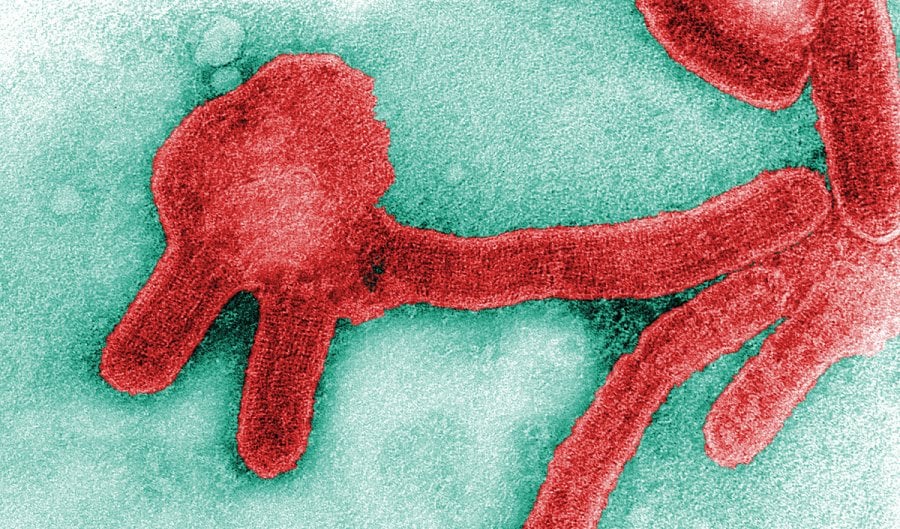Modelling study could help prevent future Ebola and other viral haemorrhagic fever outbreaks
13 October 2017 London School of Hygiene & Tropical Medicine London School of Hygiene & Tropical Medicine https://lshtm.ac.uk/themes/custom/lshtm/images/lshtm-logo-black.png
Future disease outbreaks in Africa could be prevented after a new mapping study published in The Lancet identified the pandemic potential in Africa prior to outbreaks and ways to prevent them.
Co-authored by the London School of Hygiene & Tropical Medicine and led by the Institute for Health Metrics and Evaluation at the University of Washington, the study examined the potential for the widespread onset of four viral haemorrhagic fevers – Ebola, Crimean–Congo haemorrhagic fever, Lassa fever, and Marburg virus disease - emanating from African countries.
The team of international researchers examined the relative likelihood of the four viruses emerging and spreading at several key stages in a possible pandemic, charting and quantifying progress from the first human case through to a widespread epidemic. By mapping the greatest vulnerabilities for initial cases to escalate into epidemics, more precise preparedness activities can be implemented.
Parts of Central African Republic, Chad, Somalia, and South Sudan rank as highly vulnerable to any outbreak. Areas around the Congo River in Central Africa rank highest for local outbreak potential for Ebola and Marburg virus disease. In contrast, parts of West Africa rank highest as sources of widespread epidemics for all four viruses. For example, Guéckédou prefecture in Guinea, where the 2013-2016 Ebola outbreak originated, ranks as one of the most likely districts for an individual Ebola case to result in a widespread epidemic.
Professor Peter Piot, Director of the London School of Hygiene & Tropical Medicine and a co-author of the study, said: “By assessing pandemic potential at these different stages, we can begin to identify locations where different interventions or prevention measures could have the greatest impact. The various stages reflect important transitions in an outbreak and influence what interventions should be prioritised in which location.”
Researchers focused on the four diseases as the way they move from animals to humans is similar. The study's results showed considerable differences in the potential for these pathogens to spread both between countries as well as within and among communities in an individual country. For example, researchers identified stark contrasts in the vulnerability between Nigeria's northern and southern states.
Dr. David Pigott, lead author of the study from Institute for Health Metrics and Evaluation, University of Washington, Seattle, said: “Understanding subnational variation in pandemic potential is a crucial part of preventing and responding to disease outbreaks. These results show that national assessments can mask significant subnational differences - which could be the difference between quick case detection and treatment, or early cases going unchecked and resulting in a large-scale epidemic. National assessments are an important first step, but are insufficient on their own to strengthen local disease surveillance, response, and preparedness needs.”
Interventions can range from focusing on surveillance of animals involved in transmission, rapid detection of the first case of an outbreak, or providing resources for improving health systems prior to the next outbreak. Similarly, after an outbreak has started, assessments could guide future vaccination efforts to contain any local outbreak and stop further spread.
Publication
David M Pigott, et al. Local, national, and regional viral haemorrhagic fever pandemic potential in Africa: a multistage analysis. The Lancet. DOI: 10.1016/S0140-6736(17)32092-5.
Our postgraduate taught courses provide health practitioners, clinicians, policy-makers, scientists and recent graduates with a world-class qualification in public and global health.
If you are coming to LSHTM to study a distance learning programme (PG Cert, PG Dip, MSc or individual modules) starting in 2024, you may be eligible for a 5% discount on your tuition fees.
These fee reduction schemes are available for a limited time only.